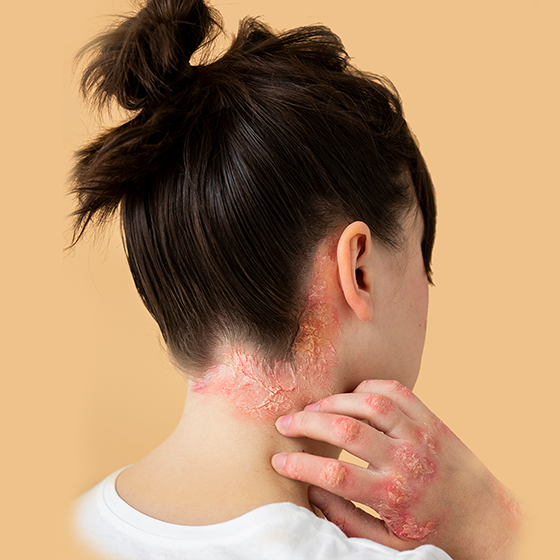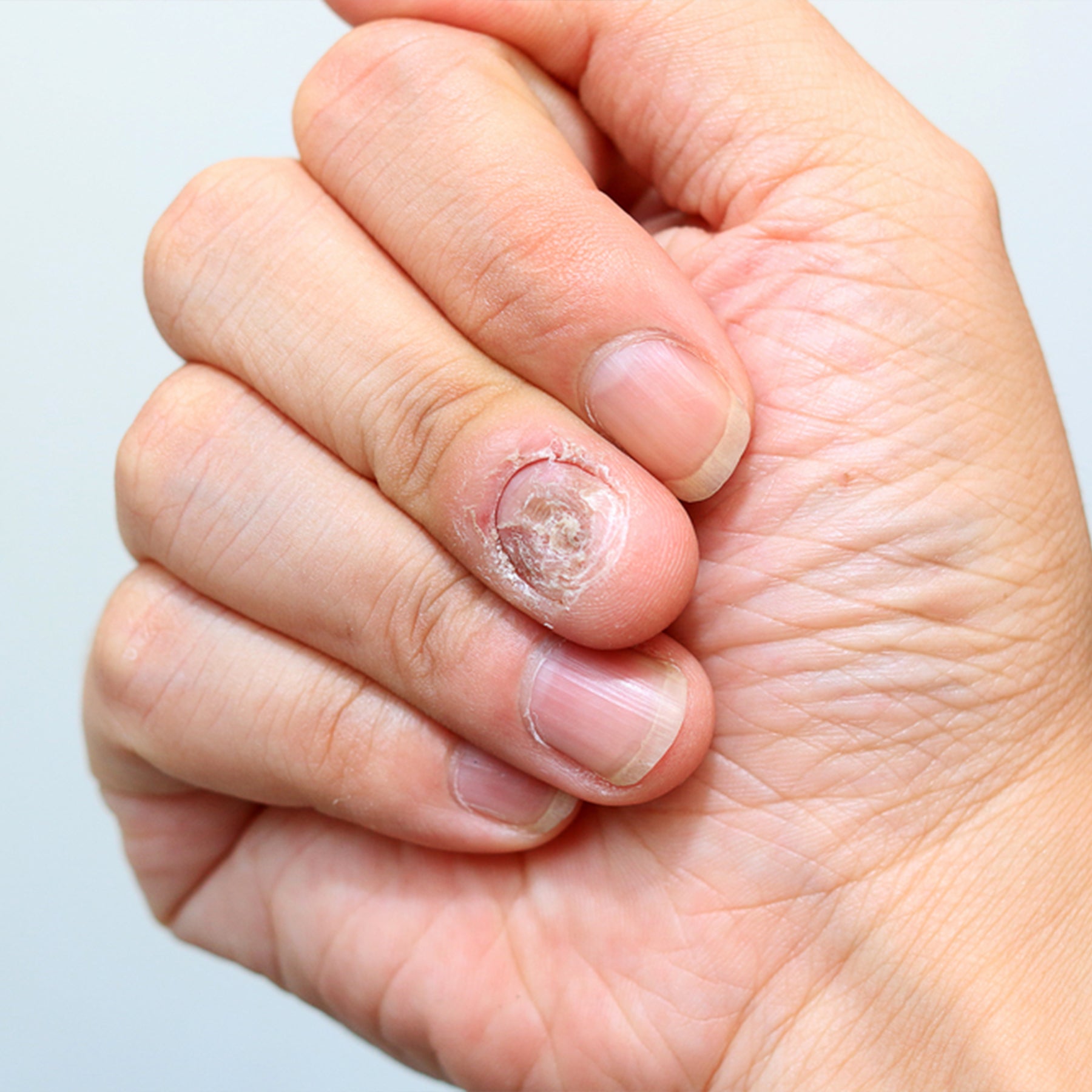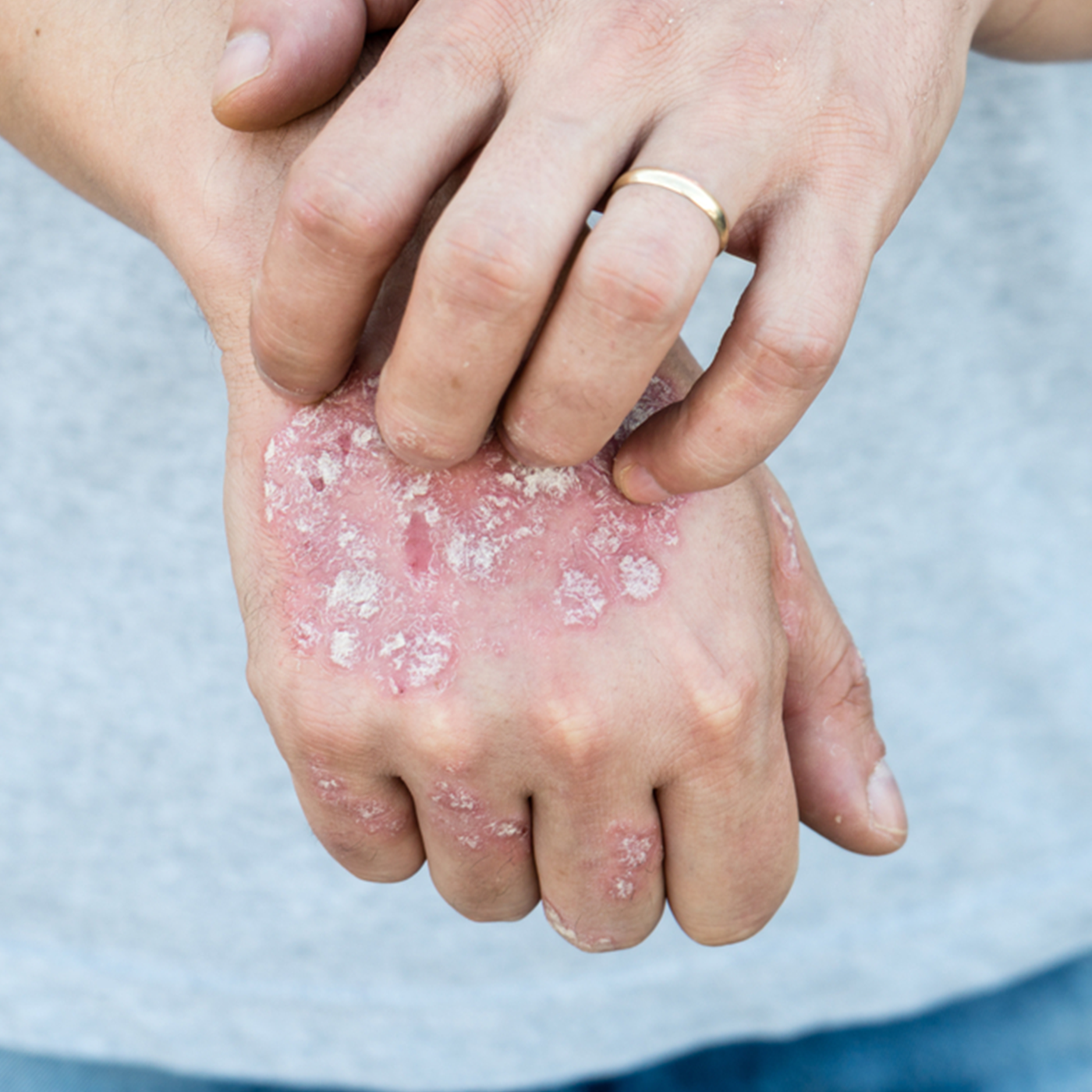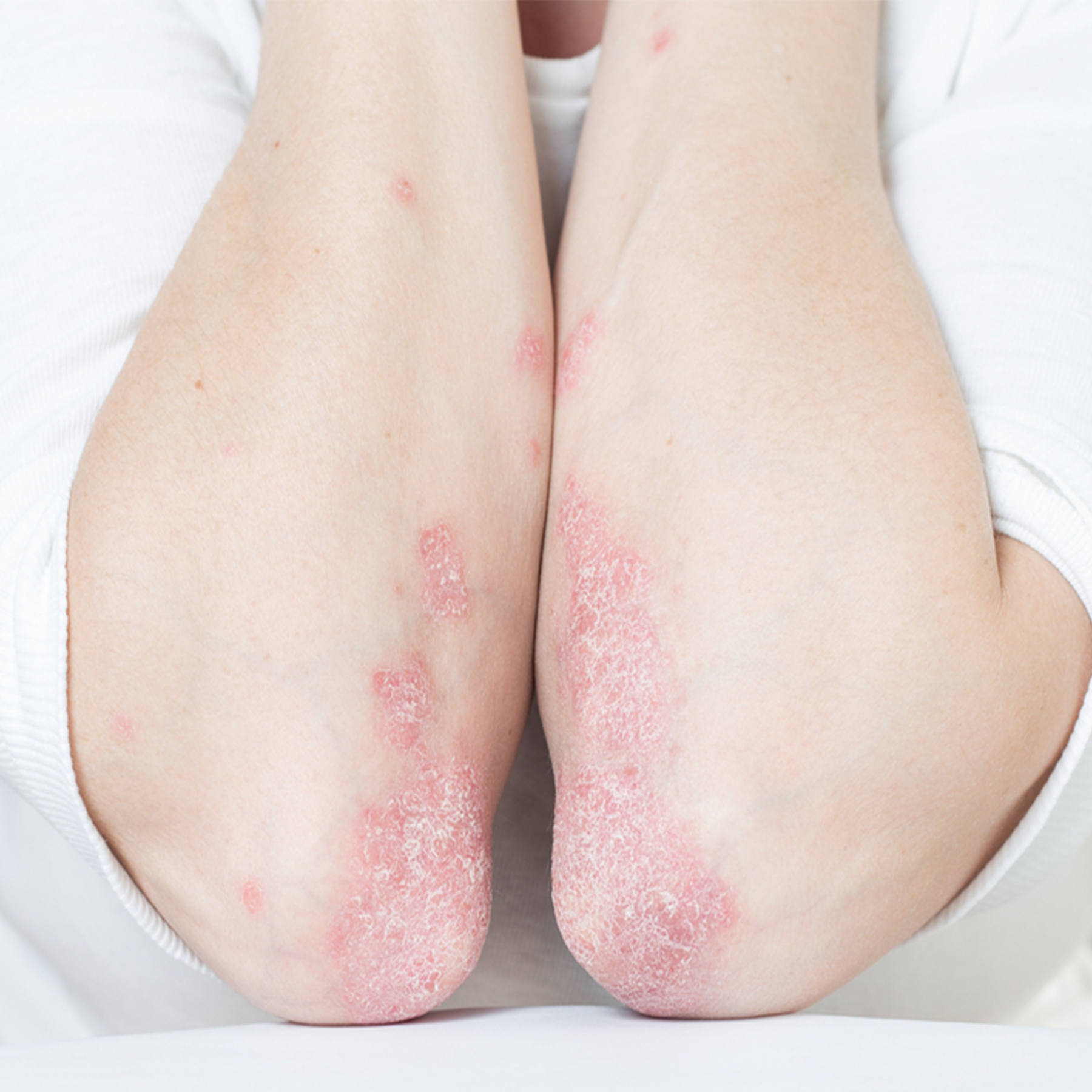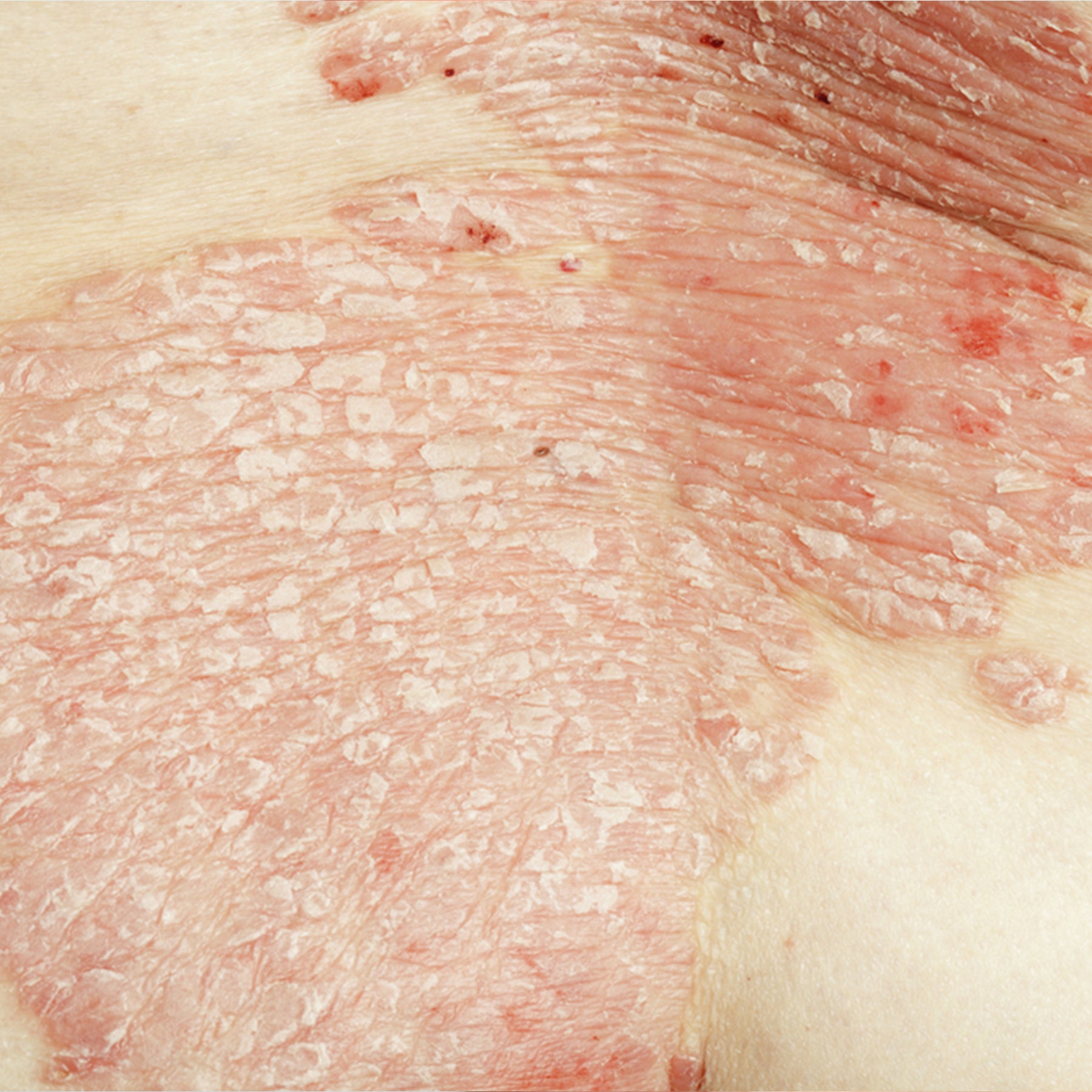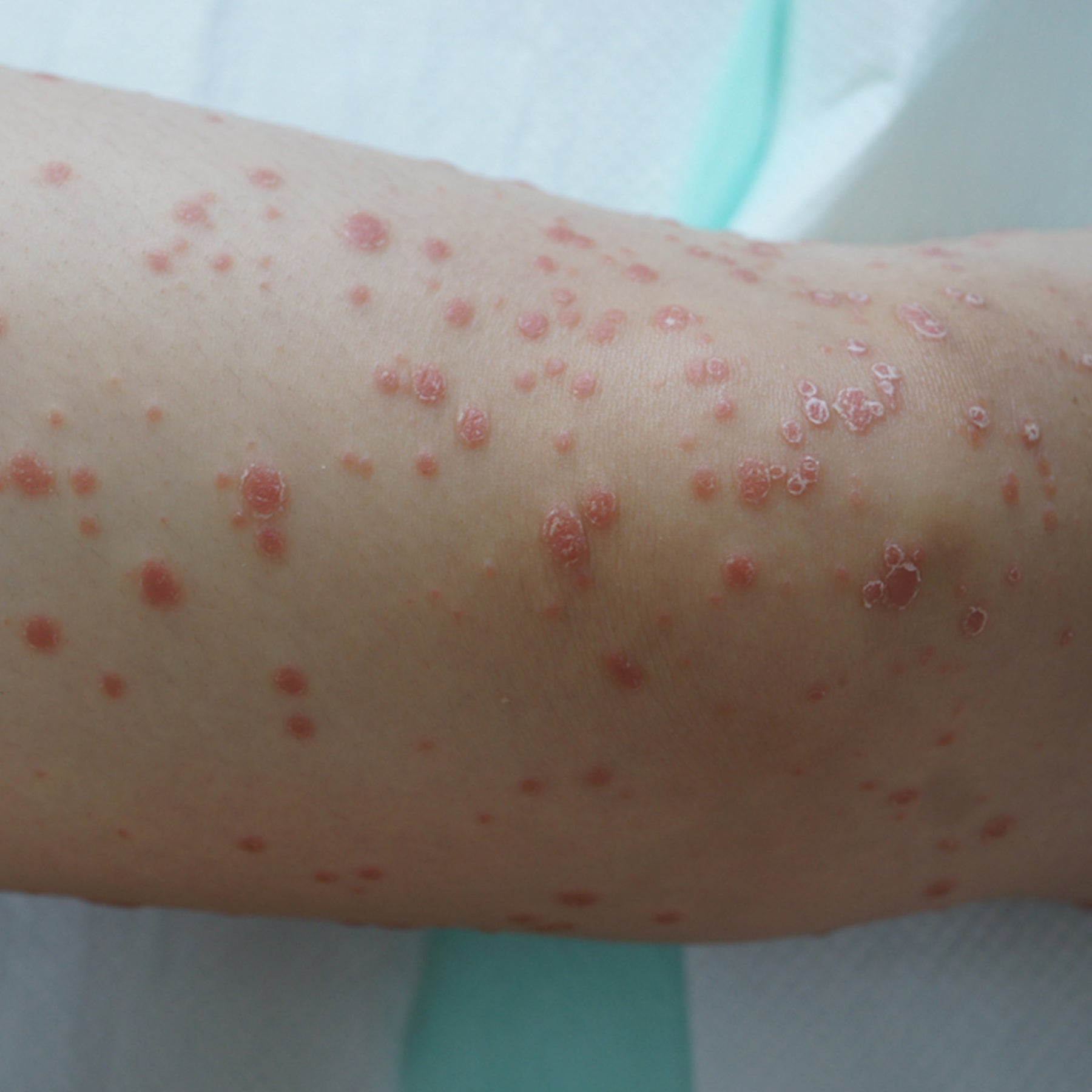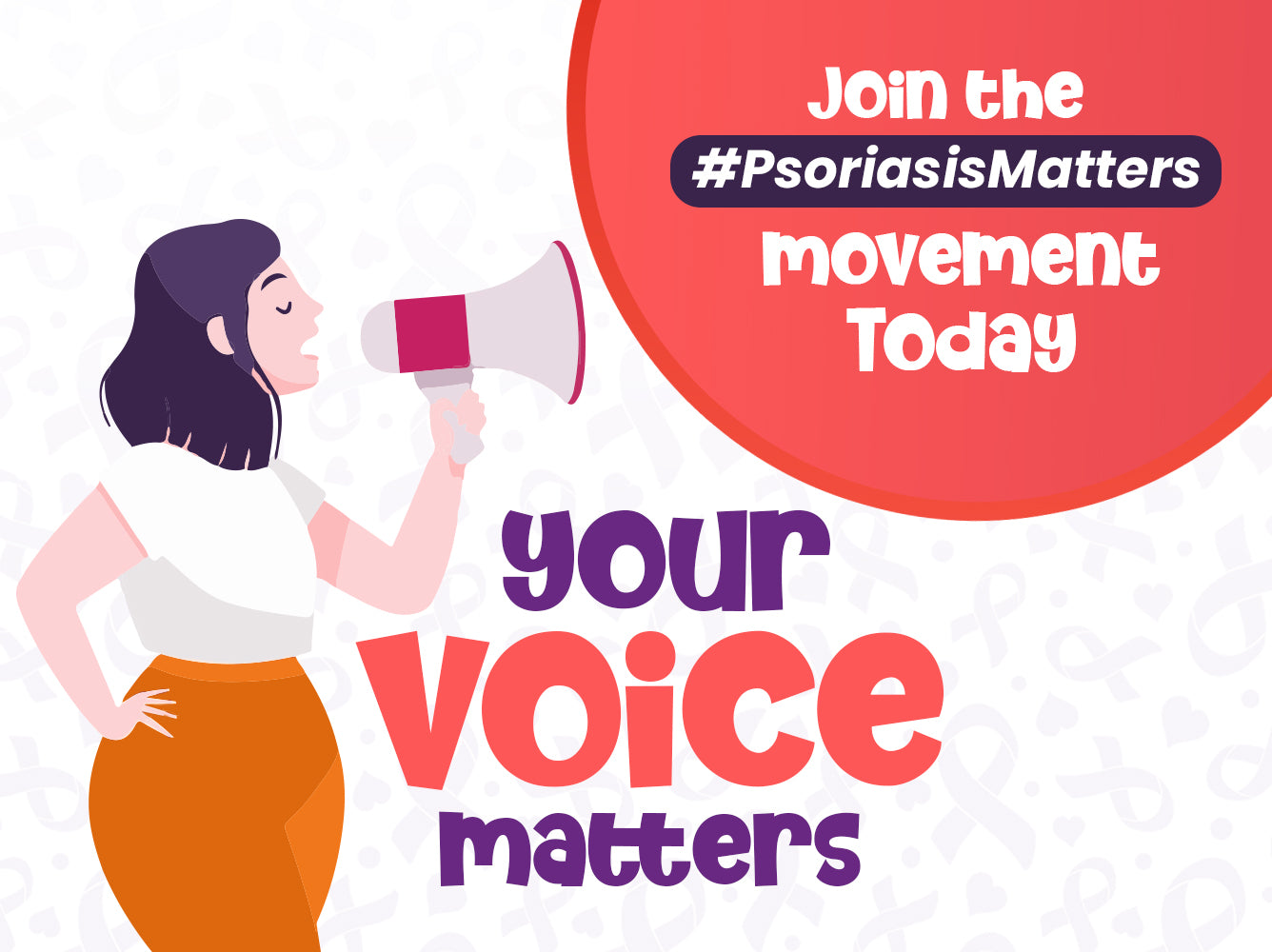Psoriasis is more than just a skin condition; it's a lifelong journey that millions of people navigate every day. Yet, despite its prevalence, psoriasis remains shrouded in misunderstanding and stigma. It's time to change the narrative and normalize psoriasis, paving the way for a brighter, more inclusive future for those living with this condition.
Psoriasis is a chronic autoimmune disease that primarily affects the skin, causing red, scaly patches to appear. It's a condition that can range from mild to severe, and while it may seem merely cosmetic to some, it often brings physical discomfort and emotional distress. Psoriasis affects over 125 million people worldwide, yet many still don't fully understand what it is.
Science Behind Psoriasis:
At its core, psoriasis is a result of an overactive immune system. The body mistakenly accelerates the growth cycle of skin cells, leading to the characteristic red, flaky patches. These can appear anywhere on the body but majorly on the elbows, knees, scalp, and lower back.
Common symptoms include:
- Red Patches: Raised, inflamed patches of skin covered with silvery scales.
- Itching or Burning: Intense itching or a burning sensation around affected areas.
- Dry Skin: Cracked skin that may bleed or become sore.
- Swollen Joints: Some people experience joint pain and swelling, known as psoriatic arthritis.

Types of Psoriasis
Understanding the various types of psoriasis is crucial for proper diagnosis and treatment. Here are some common forms:
- Plaque Psoriasis: The most prevalent type, characterized by raised, red lesions covered with a silvery white buildup of dead skin cells or scale.
- Guttate Psoriasis: Often starts in childhood or young adulthood, appearing as small, dot-like lesions. This type can be triggered by a streptococcal infection.
- Inverse Psoriasis: Appears as bright red lesions that are shiny and smooth. These typically occur in skin folds, such as under the breasts, in the groin, or around the buttocks.
- Pustular Psoriasis: A severe form characterized by white pustules (blisters of noninfectious pus) surrounded by red skin.
- Erythrodermic Psoriasis: A particularly inflammatory form that affects most of the body surface, leading to severe redness and shedding of skin.
The Stigma and Misunderstanding
Many believe it's contagious or purely a cosmetic issue, but the reality is far more complex. The visible symptoms can lead to unwanted attention, judgment, and discrimination, leaving those affected feeling isolated and misunderstood.
Breaking the Myths
Myth 1: Psoriasis is Contagious.
Fact: Psoriasis is not contagious. You cannot "catch" it from someone else. It's an autoimmune condition linked to genetics and environmental factors.
Myth 2: Psoriasis is Just a Skin Condition.
Fact: Beyond the skin, psoriasis can have significant impacts on mental health, social interactions, and quality of life. Many people experience anxiety and depression due to the visible symptoms and social stigma.
Myth 3: Psoriasis Only Affects Adults.
Fact: Psoriasis can occur at any age, from infancy to adulthood. Approximately one-third of people with psoriasis report seeing symptoms before age 20.
The Emotional Impact
Living with psoriasis can be emotionally taxing. The visible nature of the condition often leads to self-consciousness and anxiety. Many people with psoriasis report feelings of embarrassment and depression, impacting their personal and professional lives.
Consider this: A young adult with plaque psoriasis on their scalp may fear judgment during a job interview, or a teenager with guttate psoriasis might feel too self-conscious to participate in social activities. These experiences highlight the profound emotional impact of the condition.

The Importance of Normalization
Normalizing psoriasis is about fostering understanding and acceptance. It's about shifting perceptions and encouraging empathy toward those affected. When we change the narrative, we create a world where people with psoriasis feel supported and empowered.
Why Normalization Matters
Empowerment: Normalization empowers individuals with psoriasis to embrace their condition without shame or fear of judgment.
Acceptance: Promoting acceptance helps break down societal barriers and reduces stigma, leading to a more inclusive society.
Awareness: Raising awareness educates the public, dispelling myths and promoting empathy.
Support: Normalization fosters a supportive community where individuals can share experiences, seek advice, and find comfort.
How to Normalize Psoriasis
- Education: Understanding is the first step toward empathy. Educating yourself and others about psoriasis can help dispel myths and promote acceptance.
- Open Dialogue: Encourage open conversations about psoriasis, allowing those affected to share their stories and experiences.
- Support Systems: Create supportive environments where people with psoriasis feel understood and accepted.
- Advocacy: Support initiatives and organizations working toward psoriasis awareness, research, and treatment advancements.
A Brighter Future for Psoriasis
The future for individuals with psoriasis lies in increased awareness, better treatment options, and societal acceptance. Here are some promising developments:
Advancements in Treatment
In recent years, significant strides have been made in psoriasis treatment. From topical creams to biologics, the options are expanding, offering hope for more effective management. The future holds promise with ongoing research into personalized medicine, targeting the specific needs of each individual.
The Role of Diet and Lifestyle
While there's no one-size-fits-all approach, many find that diet and lifestyle changes can definitely give positive impact their psoriasis symptoms. Exploring anti-inflammatory diets, stress management techniques, and regular exercise may provide relief for some.
Advocacy and Research
Organizations worldwide are dedicated to psoriasis research, seeking to uncover the root causes and develop innovative treatments. Advocacy efforts continue to push for better healthcare policies and increased funding for research.

Personal Stories: Embracing Psoriasis
Sharing personal stories is a powerful way to normalize psoriasis. Here are a few inspiring accounts from individuals who have embraced their condition:
Story 1: Vishesh's Journey
Vishesh, a 17 year old boy, was diagnosed with psoriasis. Initially, he struggled with self-esteem, hiding her skin beneath long sleeves. Over time, he began gathering courage and broke the taboo to be hidden inside home. He became the one, who fought and won against his psoriasis problem.
Story 2: Saraswati's Quest for Confidence
Correct psoriasis treatment has helped a 18 year old girl- Saraswati, a Psoriasis patient who faced the challenges of Psoriasis to find a new lease on life. Here it is, her inspiring journey of conquering a skin disorder, Psoriasis, with the help of renowned Skin Specialist and Dermatologist Dr. Megha Chaturvedi.
Changing the narrative around psoriasis is a collective effort. By normalizing the condition, we create a world where individuals with psoriasis feel seen, heard, and accepted. Through education, empathy, and advocacy, we can pave the way for a brighter future where psoriasis is understood and embraced.
It's time to break the stigma and celebrate the uniqueness of every individual, empowering those with psoriasis to live confidently and boldly. Together, we can build a world where psoriasis is no longer a barrier but a testament to resilience and strength.


